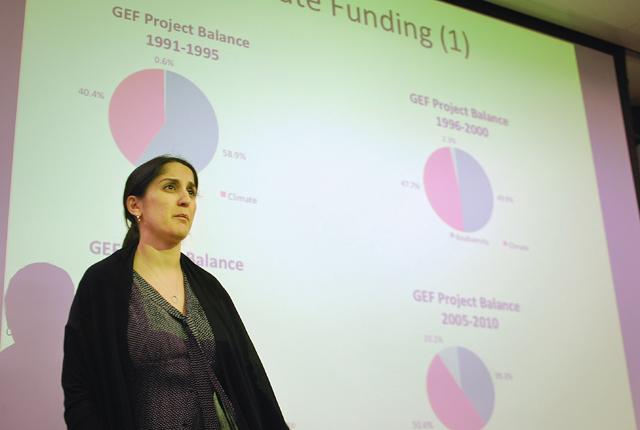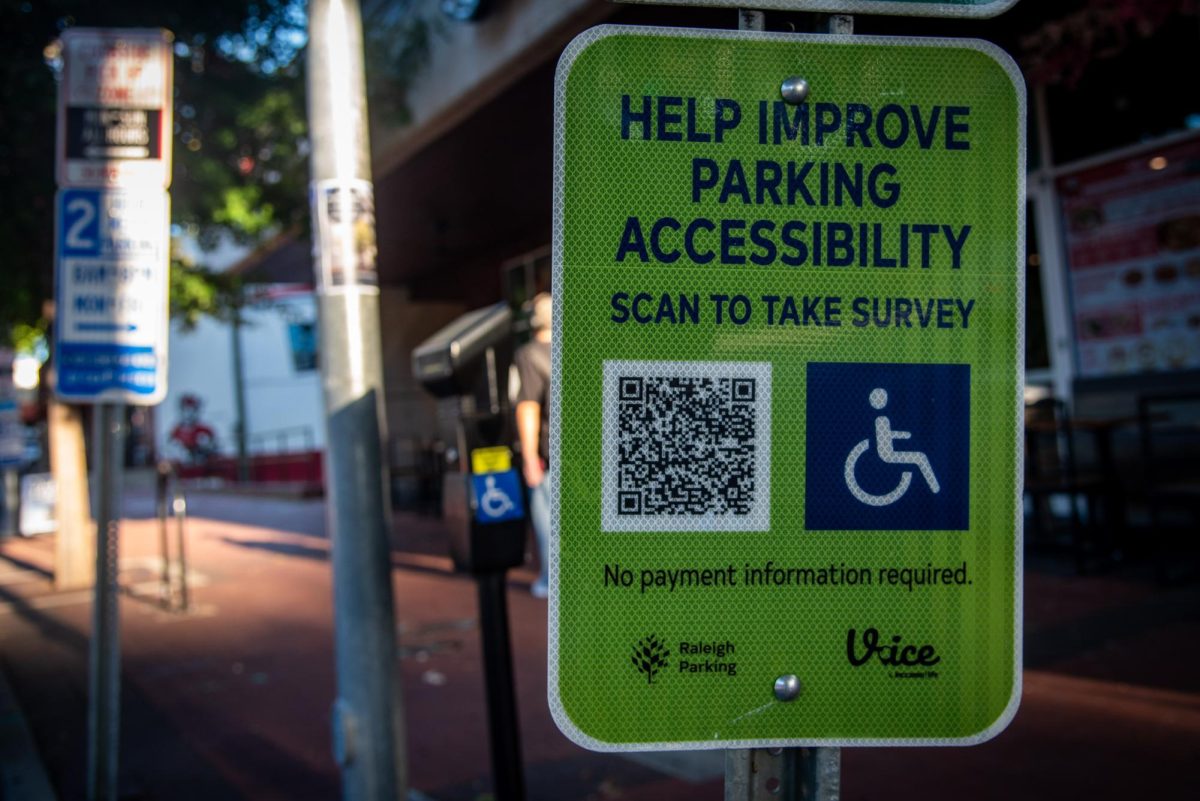Though climate change started off as a scientific phenomenon, today it is discussed in corporate boardrooms and government offices worldwide.
As more people have become aware of climate change issues, corporations have found ways to incorporate sustainability as a business strategy via “Climate Bandwagoning” – a phenomenon that has made inroads into international bureaucracy and is now affecting global political discourse.
Sikina Jinnah, assistant professor of international relations in the Global Environmental Politics Program at American University, spoke Wednesday about the impact of climate bandwagoning on the global business and political stages.
According to Jinnah, climate bandwagoning occurs when non-climate related institutions develop climate-related programs and framings, Jinnah said an increasingly large number of institutions are engaging in the process simply because it is a popular cause.
“If you ask today why there is climate bandwagoning, the first thing that comes to my mind is that simply because it is a hot topic,” Jinnah said, “Institutions will also do it to attract financial and political resources, and to address concerns about the climate’s impact on the organization’s core mission.”
Jinnah said that bandwagoning can be beneficial because it can overcome political barriers that result in enhanced effectiveness and provide increased attention to under-resourced issues, such as deforestation. Another positive outcome of a global climate-change debate is that more voices lend legitimacy to climate governance.
On the negative side, Jinnah said climate bandwagoning can result in inefficient management, and could even lead to wasted resources. In addition, too many people at the climate change table may make cooperation difficult.
The take home message, Jinnah said, was the increasingly important role of United Nations Secretariat plays in framing climate-related policies and conventions. The U.N. Secretariat is one of the five principal bodies of the U.N.; it is tasked with providing studies, information and facilities needed by U.N. bodies.
“International bureaucracy matters and we can’t ignore it. They frame a lot of important stuff and secretariats matter in global governance,” Jinnah said, “Another important thing to observe is that climate linkages are changing biodiversity. This is affecting governance by providing new frames that are fundamentally shifting the political discourse surrounding conservation.”
Jinnah said she believes that protecting biodiversity gives developing countries a guide to use when factoring climate change issues into their policies.
“Developing countries are unique in this respect because they are the places most vulnerable to climate change as well as major biodiversity regions remaining in the world,” she said. “In the U.S. we have neglected our biodiversity and Europe has very nearly exhausted all of it. Developing and poor countries are most vulnerable because they do not have resources enough to protect biodiversity that is affected by climate change. Conversely, they still house such natural resources simply because they have not had a chance to destroy it yet.”
Dan MacDonald, a junior in political science, came to know about this discussion from his global environmental politics teacher, and said the event was very interesting.
“It was good to see how our world is trying to cope with global climate change at different levels and what we are doing in that direction,” MacDonald said, “What I really found most interesting was how the money used for mitigation purposes is controlled and distributed by various organizations. This makes you realize how to cope with this increasingly important issue.”
Sarah Royster, a senior environmental engineering, was surprised to find how closely climate change connects to other issues.
“It was interesting to see how intertwined politics is with climate change,” Royster said, “One of the most important things I realized was how much influence the [organization’s climate] secretary can have on people and organizations.”





